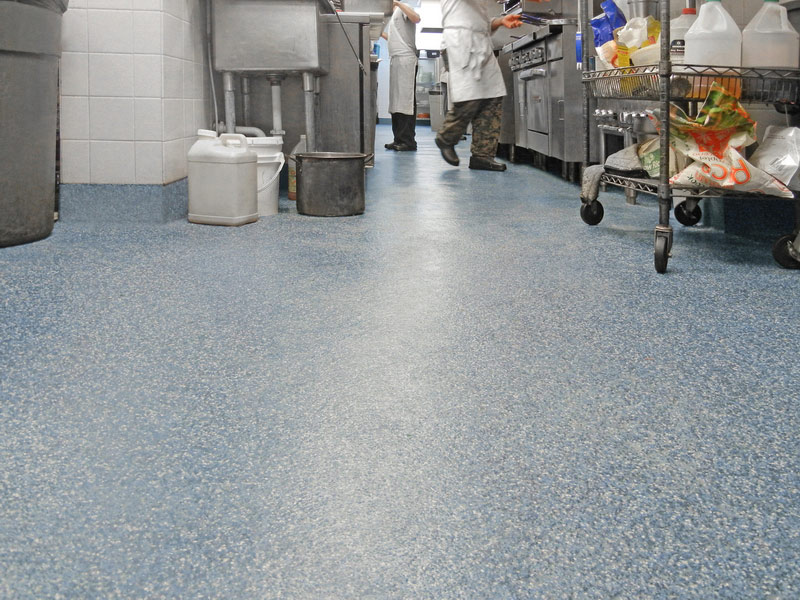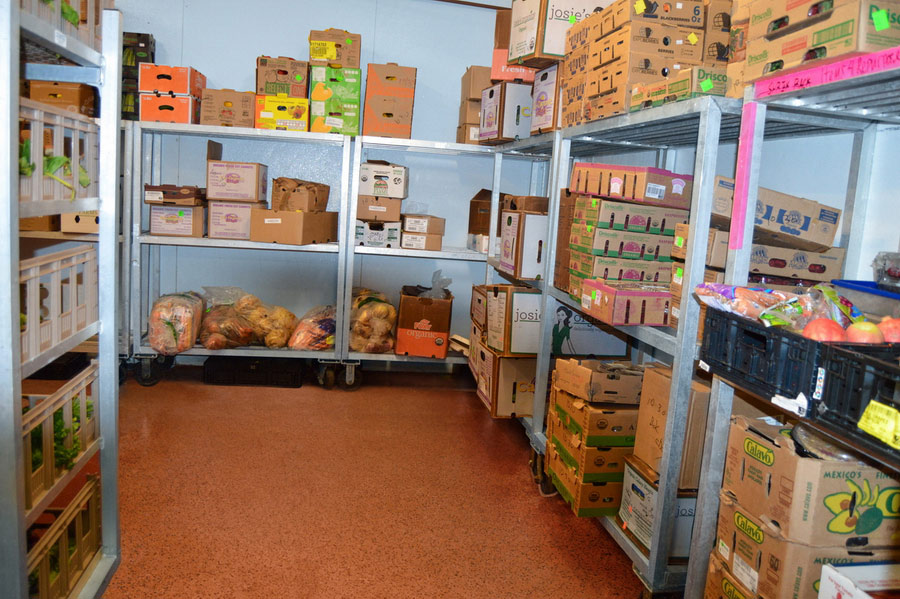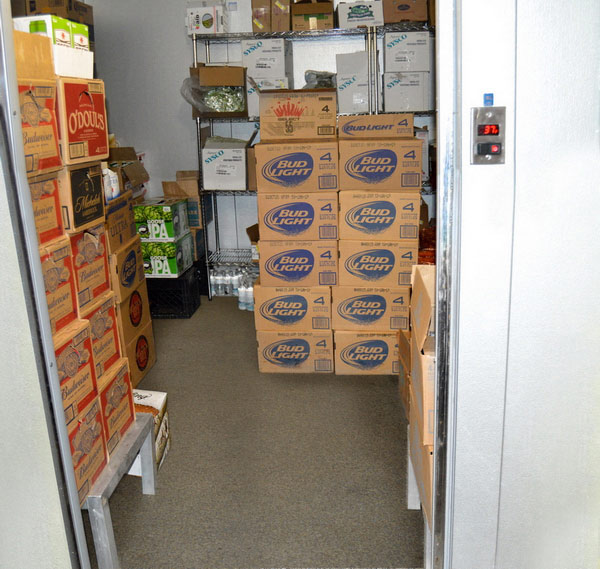A busy commercial kitchen needs high-quality food-grade flooring that meets all the hygiene standards and health regulations that the industry demands.
But, deciding on the best food-grade kitchen floor that guarantees a hygienic, easy-to-maintain surface with added nonslip safety features can prove challenging.
Our Everlast® Epoxy team understands that facility managers in the food and beverage industry demand a durable floor that can withstand the rigors of a busy commercial kitchen.
If you’re looking to install a commercial kitchen floor or replace a failed surface, read on to discover the top five questions our Everlast® experts are asked when it comes to commercial kitchen flooring installation.
Should I choose resin flooring or ceramic tiles for a commercial kitchen?
Two of the most popular surfaces for a commercial kitchen are epoxy resin and ceramic tiles and, at first glance, there appear to be few differences between them. Both are hard-wearing and resistant to heat and staining, so which should you choose?
Ceramic tiles offer a durable, heat-, and stain-resistant solution, but they are also time-consuming to install, which could mean costly downtime for your facility.
They also have little protection against shock impacts, so if a heavy pan is dropped, the tiles will invariably crack, which creates a haven for bacteria breeding grounds. The tiles also become slippery when wet, which presents a safety issue in a busy commercial kitchen.
Epoxy floors are also incredibly hard-wearing yet have the added advantage of being slip-resistant—even when wet—which protects your employees and any visitors to your facility.
Installation is also a breeze, with very little downtime and no toxic fumes or odors to deal with. And since our resin floors are a pourable, seamless solution with an integral EPA-registered antimicrobial component, the floor remains protected and presents no cracks or chips to attract microorganisms.

Which commercial kitchen floors are the easiest to maintain?
After a busy shift, the last thing your staff wants to do is spend additional time cleaning and maintaining the floor. Choosing an easy-to-maintain floor will keep your staff happy—and your floor looking good for years to come.
Concrete floors tend to be hard-wearing but are porous in nature, which means any spills and liquids will easily penetrate into the layers and cause odors and stains that will permanently mark your floor no matter how much elbow grease is applied!
Ceramic tiles are a better option than concrete, but over time, the grout will wear and degrade, allowing moisture and germs to seep into the substrate. This makes the tiles much harder to clean according to the stringent standards required by the food industry.
Resin floors are nonporous, so spills will not penetrate the surface, which means they can be mopped away without any fuss, leaving nowhere for bacteria to hide. An epoxy floor will require very little maintenance over its lifetime, which will be welcome news for your cleaning team!

Are all commercial kitchen flooring systems resistant to extreme temperatures?
No. If you need flooring that can cope with heat and steam in the long term, choose Everlast® Epoxy. Our product absorbs and transfers the heat, can withstand temperatures up to 158°F, and will not soften or “pit” when exposed to hot oil or grease.

How long does installing a new commercial kitchen floor take?
It depends on the type of flooring you use. Ceramic tiles are laborious to install, as they need to be cut to shape, secured to the floor, and finally, grouted. This process could mean extended downtime for your business.
Concrete floors are easier to install, but it takes time—up to 48 hours—for the concrete to dry enough for foot traffic and up to four weeks before it reaches full strength.
Everlast® Epoxy flooring provides the best of both worlds as it is easily installed and cures overnight, so there is very little or no downtime for your business.

What is the life expectancy of a commercial kitchen floor?
Some commercial kitchen floors have longer lifespans than others. Heavy foot traffic and kitchen equipment will take their toll, and some floors may not be up to the task.
After just a short time, tiles can chip and concrete will stain, leaving your floors unattractive and exposed to microbes. Most commercial kitchen flooring installations will need to be replaced or repaired within 5 to 10 years.
Everlast® Epoxy offers a significantly longer lifespan. We are so confident in the durability of our flooring that we offer a 20-year limited warranty, which ensures your floor will not have excessive surface wear or delamination for two decades after installation.
Want to find out more about an Everlast® Epoxy commercial kitchen flooring installation? Then chat with our friendly team on (800) 708-9870 for advice, or request a free flooring sample so you can see and touch the quality of our floors for yourself.
